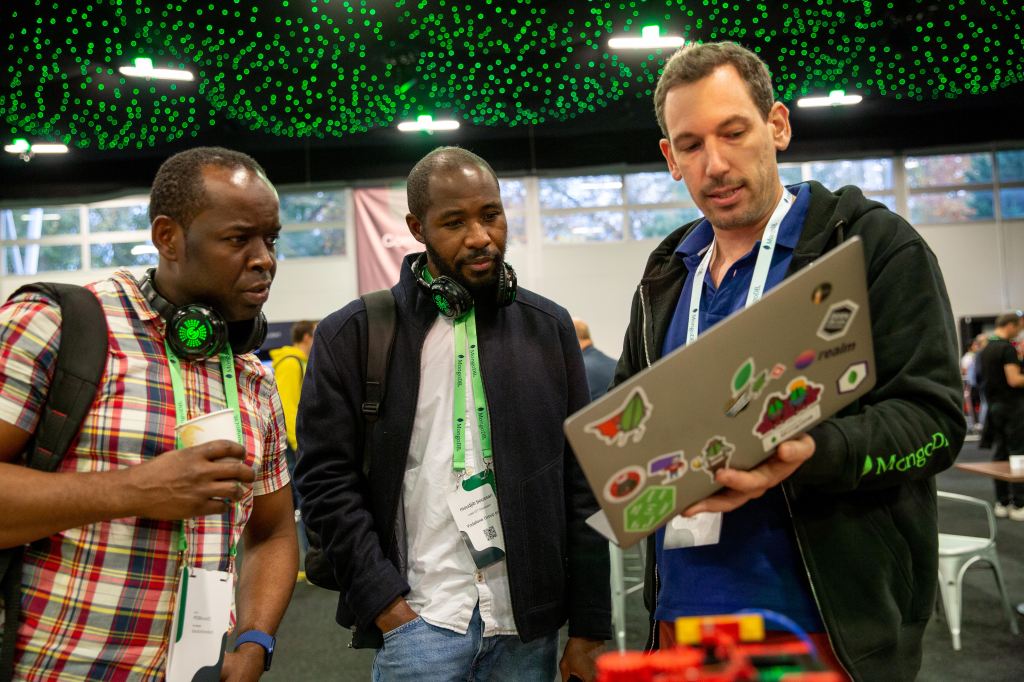A coder since a kid, MongoDB’s CTO explains the difficulties in finding and keeping top tech talent.
Key Takeaways
- Companies that build the best culture will attract and retain the best developers
- Developers want to produce software that impacts people’s lives
- Globally, people leaving other companies creates a rebalancing and opportunity

Software company MongoDB helps organisations create digital products that drive innovation and improve business outcomes. Globally, the company has brought in more than US$1 billion in revenue, and has more than 1,200 customers in Australia including Bendigo and Adelaide Bank, Woolworths, Macquarie Bank, Canva, Ticketek and My Muscle Chef.
MongoDB’s chief technology officer, Mark Porter, began coding when he was a kid. He’s held leadership roles at AWS, Oracle and Grab. In a Q&A with Forbes Australia, Porter reveals what organisations need to do to attract top talent, and drive growth in their businesses.

How have developers and the technology industry as a whole evolved over the years?
Early in the digital age, using software to run your business was sometimes enough to set a company apart. But today, every significant company is becoming defined by the software they build, and how that software accelerates their business – not only for their customers but also to give them a competitive advantage.
If software and applications are the currency of the new economy, development teams are the market makers. Developers have gone from being a curiosity when I began my career to becoming a boardroom priority, especially as the pandemic and rapid digitisation that accompanied it has ratcheted up the urgency for business leaders.
One great example of this is Bendigo and Adelaide Bank, which has accelerated its cloud transformation to give customers improved experiences on the front end while reducing the complexity of running the bank on the backend. A huge part of this has been shifting to a culture where developers have a seat at the table just like all the other business units.
Unfortunately, many companies are still not sure how to use software engineering and their developers. These companies need to understand that positive outcomes, non-linear ones, can come from investing in attracting and retaining great engineering talent. For some companies, this can be mostly on the front end of the business, where it faces customers. For others, it’s about improving internal processes and gaining efficiencies.
Tech talent is important but it seems in short supply?
At an absolute level, sure. But it’s more complicated than that. During my 2-plus years at MongoDB, I’ve spoken to hundreds of CTOs, CIOs and CEOs all over the world. One of the constant refrains is the difficulty in finding and keeping tech talent. This is personal for me too – not only does MongoDB make software that helps developers but we also have a large and growing development team.
Judging from the recent Australian Jobs and Skills Summit, this problem is particularly acute here. At the summit, Atlassian’s Scott Farquhar reminded the audience that Australia is currently 186,000 jobs short of the 1.2 million technology jobs it will need in 2030.
On top of those stark numbers we have global trends like the Great Resignation from last year, and more recently talk of layoffs in some parts of the tech industry. Even back then, I didn’t like that term and preferred to use the term Great Rebalancing instead.
What do you mean by the Great Rebalancing?
For companies like MongoDB, and many of our customers who value developers and software engineers, people leaving other companies is an opportunity.
Companies that build the best culture will attract and retain the best developers. The rebalancing is going to be developers moving away from those organisations that can’t enable them, can’t empower them, and won’t support them creating amazing outcomes.
All the talent is going to go to companies that are talking to their developers in the right way, enabling them to produce software that impacts people’s lives, and giving them an opportunity to be deeply involved in the business. Yes, salary and benefits matter, but those are not competitive advantages anymore considering how in-demand developers have become.
What can organisations do to ensure they do attract and retain the best talent?
The change starts and ends with culture, and that is the spoken and written practices and rules that drive how humans and systems act and react in an organisation.
An issue we’re facing is that most of the business world and culture hasn’t been created around developers.
Here are a few things I’ve learnt.
First, businesses need to speak directly to developers with candour so they understand intimately what is happening inside the business. MongoDB’s culture of bottom-up empowerment and planning, with top-down business guidance and no micromanagement make us a magnet for the best and brightest.
Second, listen to developers and give them the space and psychological safety to share their opinions. They see things management doesn’t and are more likely to understand the realities of the current software and how to improve it and create innovation.
Then you need to empower them to make decisions. This is often difficult for many organisations to operationalise. The business sets the strategy and direction, but then you need to trust your development teams to make decisions about the best way to use tech to get there, including what technology and partners will be the most suitable.
Finally, and here’s a surprising fact: you have to hold them accountable. One really interesting trend I’ve seen recently is the maturity and ambitions of the developers and teams I talk to. It shouldn’t be surprising, in every other discipline in the world the best people want to be held to high standards and respected enough to be responsible for their results. The best developers are no different.
If you don’t do this, you will lose your talent to those companies that do. Thankfully, Australians don’t need to look far for fantastic examples. Just look at Canva, a fantastic world wide success that has built a world class engineering culture – and a MongoDB customer. We’re proud not only of what we’ve done technically with Canva but how our teams work together.